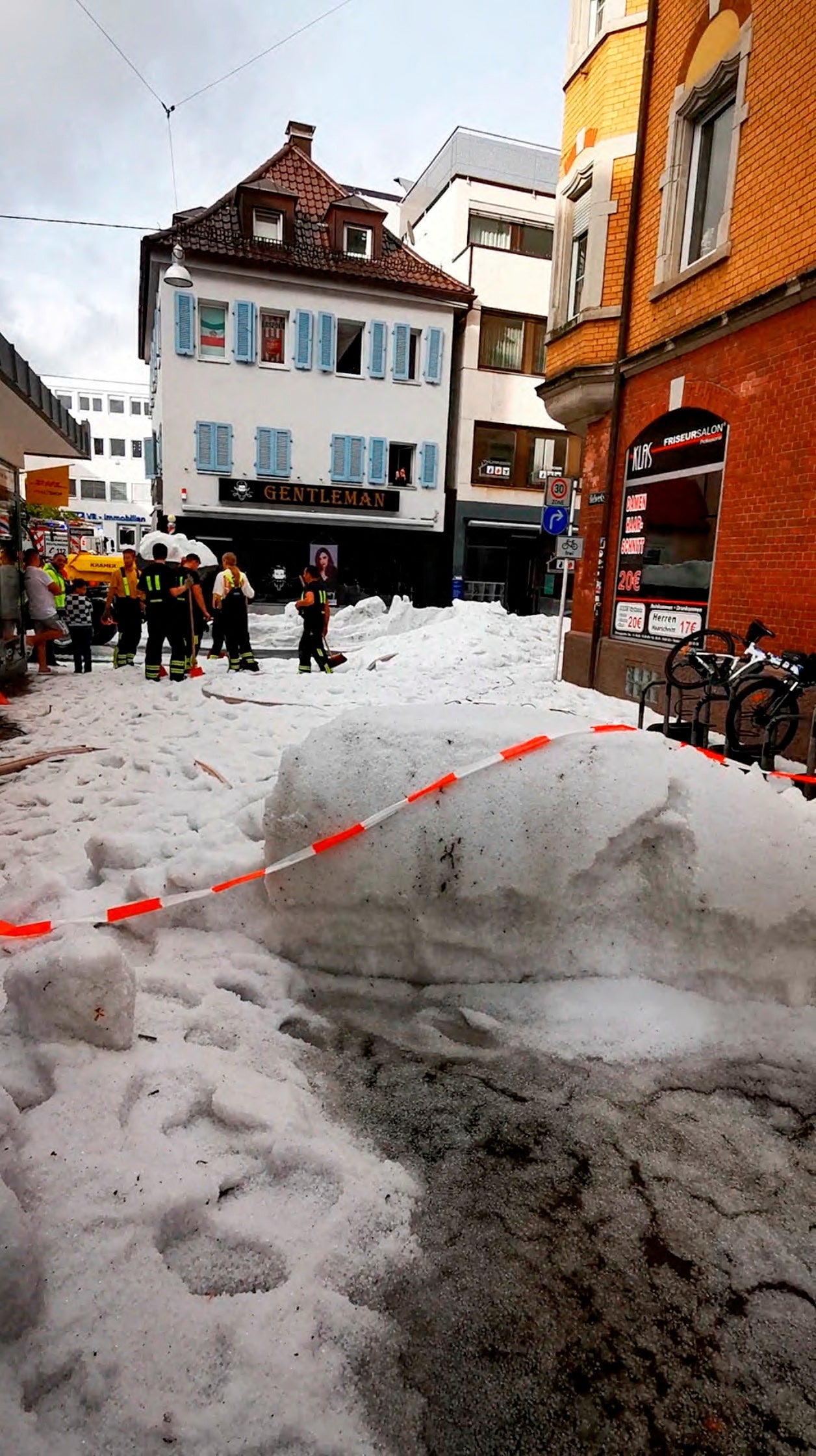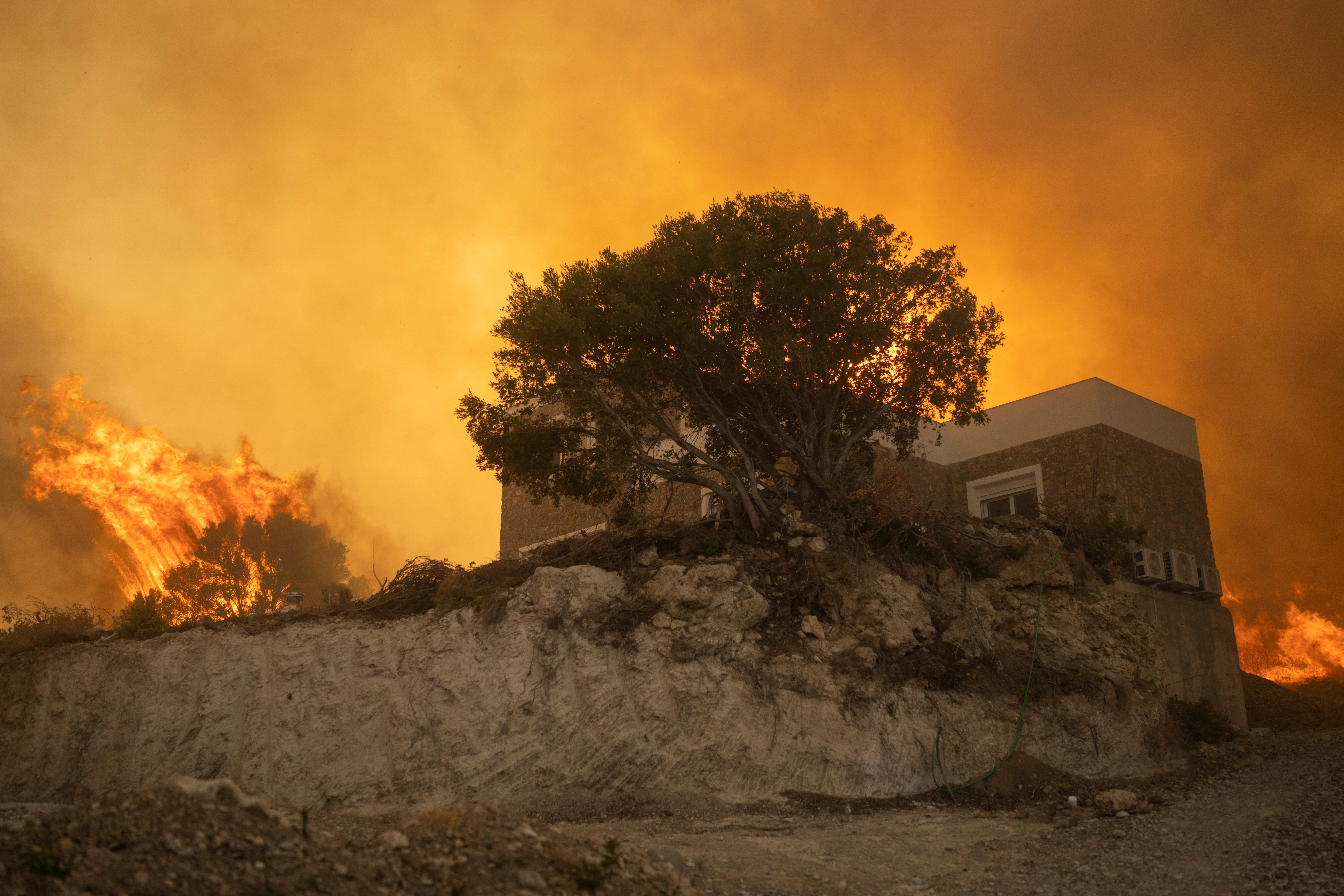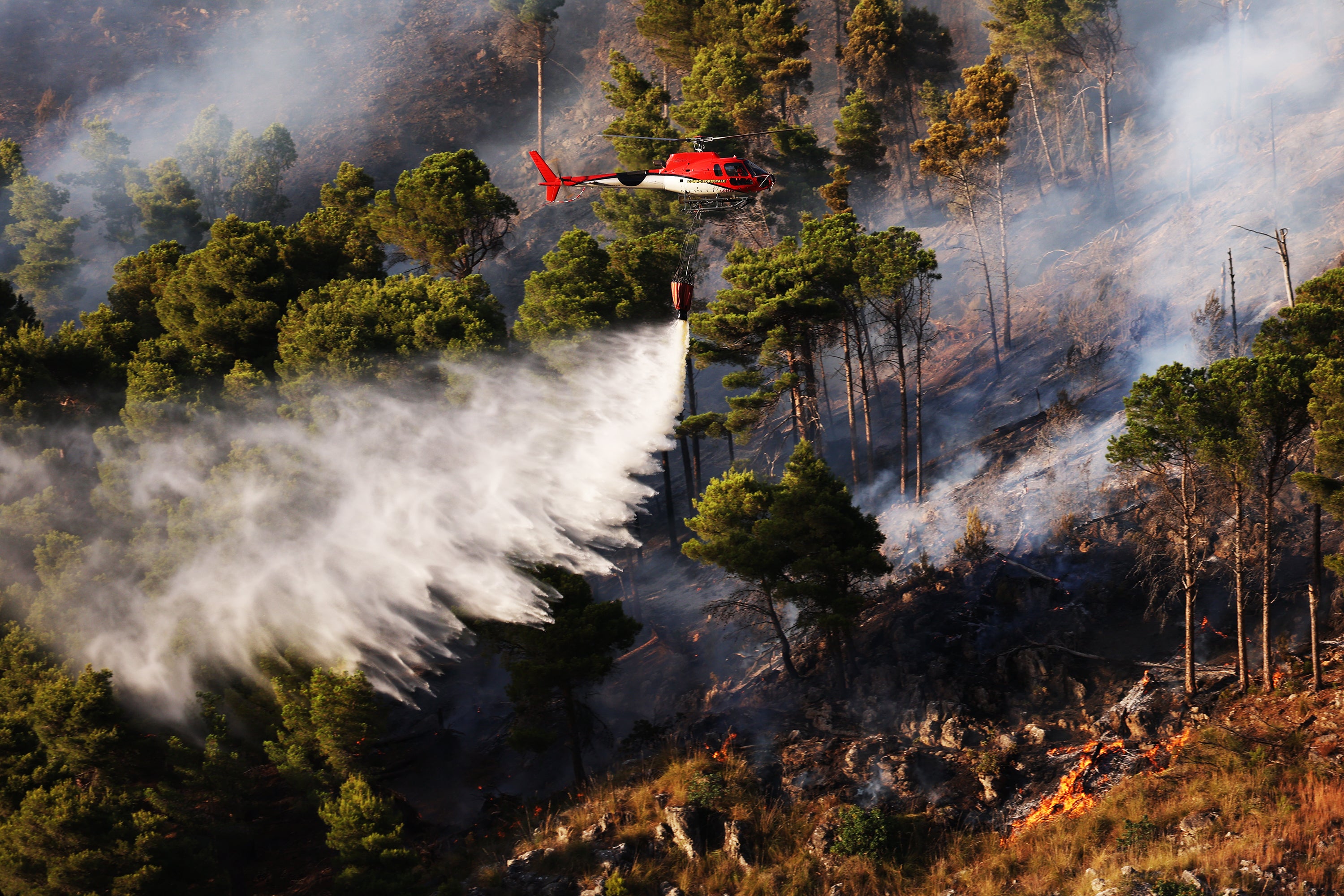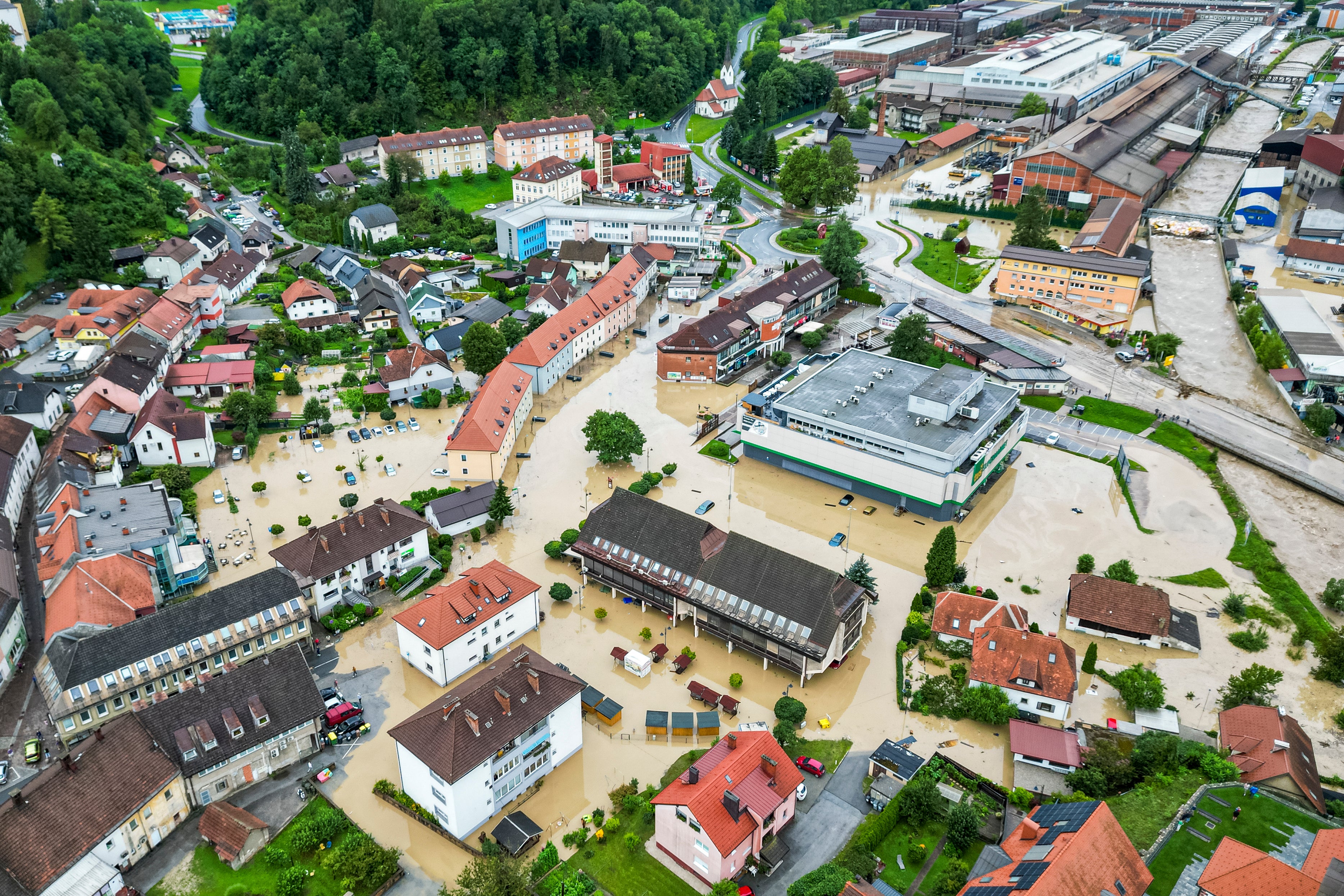Snowploughs clear German town’s streets after freak hail storm
As peope in Reutlingen were battling hail others across Europe have been battling high temperatures as well as heavy rain
Germany has been hit by an extreme storm as hail and heavy rain battered the southwest city of Reutlingen.
Officals claim the hail build up reached as deep as a foot in some areas, requiring snowplows to be dispatched.
About 250 firefighters participated in the clean up.
Families living in the city used shovels to attempt to clear the roads, leaving mounds of ice building up on the pavements. One video that emerged on social media shows a postman navigating his heavily-laden bicycle through a stream of melted ice, the rest of the street impassable, reports the Telegraph.

The Echaz River, which runs through the city, rose by five feet in a matter of minutes, briefly bursting its banks, but there was no major damage to the city. Officials said drainage systems were also blocked by the storm, causing water to pour into underground garages and basements.

However, this is just one of several extreme weather events that have taken place in Europe recently as the south of the continent still battles very hot temperatures. Last month’s heatwaves saw temperatures break records.
Greece, Italy and Portugal
The extreme heat continues to take hold of Southern Europe following the destructive wildfires in July in parts of Greece, Italy and Portugal.
At one point there were more than 1,000 wildfires, which destroyed over 46,000 square miles – an area half the size of the UK.

While temperatures in these regions have lowered somewhat now, scientists confirmed that July 2023 was, on average, the hottest month Earth has ever experienced on record. Peak temperatures in Greece alone reached 46C.

Slovenia and Austria
But it hasn’t just been the heat, extreme rainfall has recently caused destructive flooding in parts of Austria and Slovenia. Friday 4 August saw torrential rains hitting two-thirds of Slovenia, causing flooding PM Rober Golob describes as ‘the biggest natural disaster’ in the country’s history.

At least three poeple have been confirmed dead as flooding saw vehicles and houses submerged in up to 6 foot of water. 16,000 households remain without electricity as rescue efforts are ongoing.
Forecasts show that more storms are yet to come after what has already been record rainfall for the country.

UK and Ireland
The UK also continues to suffer a wet and windy summer as, while Storm Antoni begins to clear, it has left severe flooding in its wake.
The village of Loftus in North Yorkshire has been hit by extreme flooding for the second time since 2020 with resident Paul Jones-King, 47, telling Sky News: “I’m a nurse, I finished a night shift, was sat having a cup of coffee before I was due to go to bed, and literally within 10 minutes your house is flooding.”
In the Republic of Ireland, Dublin homes were also hit by flash floods, with eight people evacuated from their houses and one person taken to hospital.

Why is this happening?
There is some misconception, potentially due to the phrase ‘global warming’, that climate change only refers to increasing heats. However, climate change is a measure of all climate phenomona, including rainfall and wind patterns, as well as temperatures.
The Met Office links extreme weather, including global heavy rain, specifically to climate change. The US Environmental Protection Agency explains how this works:
“Climate change can affect the intensity and frequency of precipitation. Warmer oceans increase the amount of water that evaporates into the air.”
“When more moisture-laden air moves over land or converges into a storm system, it can produce more intense precipitation—for example, heavier rain and snow storms.”
Join our commenting forum
Join thought-provoking conversations, follow other Independent readers and see their replies
Comments
Bookmark popover
Removed from bookmarks